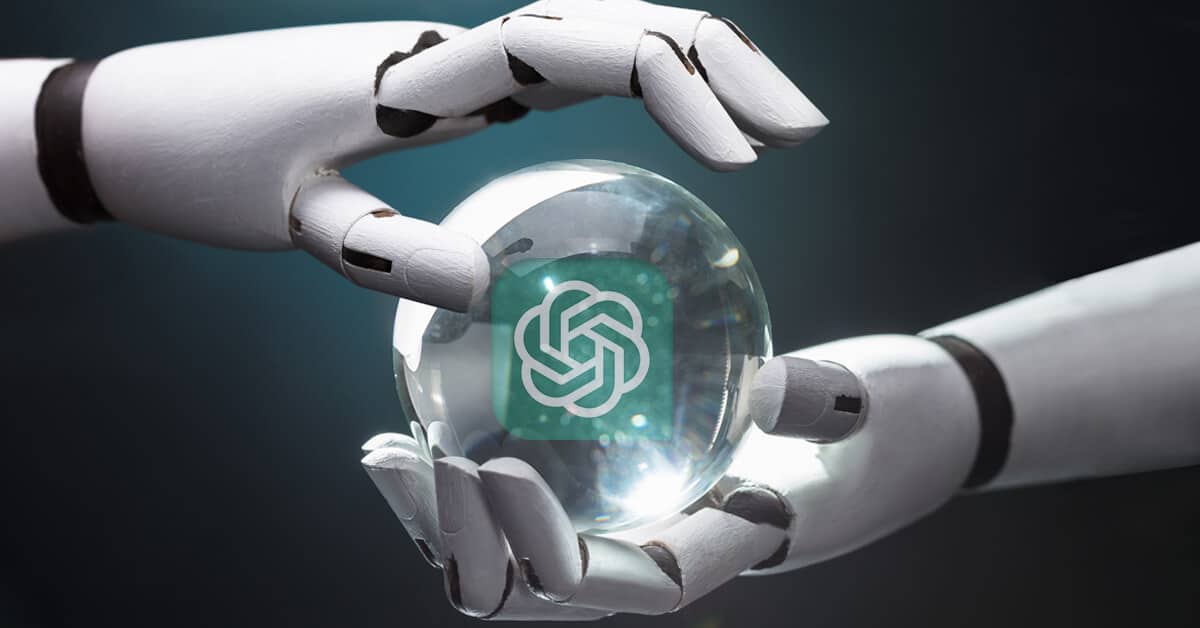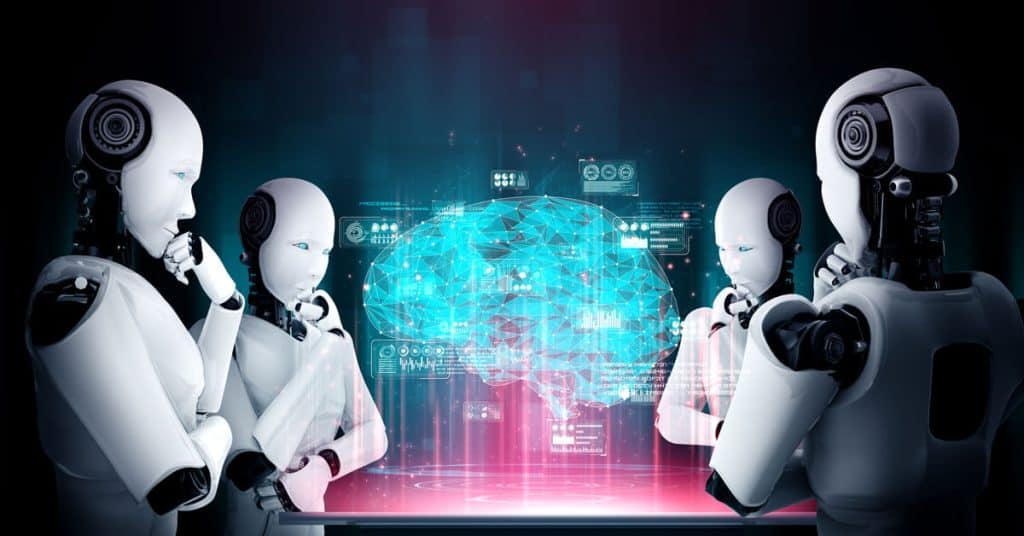ChatGPT-3 and 3.5 were exciting curiosities and promising versions of what could be. The arrival of ChatGPT-4 took the world by storm and caught many people off guard with how well it performed. It is raising questions and expectations for its successors. As we look forward to the development of ChatGPT-5, examining the potential improvements, transformations, and ethical concerns that may arise with this advanced AI model is essential.
ChatGPT-5 Predictions
There’s no doubt that ChatGPT-5 will be bigger, faster, and stronger, but what are some of the key features we can expect to see significant improvements in? As a digital marketing agency that aims to be on the cutting edge of technology, Catapult is here to predict and explain our expectations for the newest model, which we could see launch by the end of the year.

Key Improvements and Features
- Quality of articles: ChatGPT-5 is expected to produce higher-quality articles than its predecessors, with better coherence, creativity, and accuracy.
- Memory model –Introducing a more sophisticated memory model will enable ChatGPT-5 to manage and process multiple conversation threads, allowing it to better understand the context of user inputs and maintain consistency.
- More input capabilities: With the ability to process and analyze multiple inputs, such as various articles or stories, ChatGPT-5 will generate more accurate and relevant content based on the provided information.
- Bias removal – We can expect the issue of trained AI bias, which has been a concern with previous models, to be removed as a wider variety of individuals train the AI, and it continues to learn from other sources.
The Role of User Community
The user community has played a significant role in shaping the development and direction of ChatGPT-5. Feedback from users has helped identify areas for improvement and provided valuable insights into the model’s strengths and weaknesses.
Generalized Artificial Intelligence
ChatGPT-5 may represent a significant step towards generalized artificial intelligence, capable of learning from itself and adapting to new situations. The implications of such a development are vast and may influence various aspects of society, from technology to science fiction.
In other words, if you haven’t been a science fiction fan before, you may want to start reading up on the classics and the new bestsellers in the genre. Reality often finds itself mimicking fiction, and technology is no exception. For example, the 1960s science fiction series Star Trek significantly influenced the invention of cell phones.
In the show, characters used handheld communication devices called “communicators” to talk with each other across vast distances. While working on mobile communication technology, Dr. Martin Cooper, an engineer and executive at Motorola, was inspired by the communicator concept. He recognized the potential for portable communication devices connecting people without needing fixed lines. In 1973, Cooper and his team at Motorola developed the world’s first handheld mobile phone, the DynaTAC 8000X, laying the foundation for the modern cell phone industry.
The influence of Star Trek’s communicators on cell phone design showcases the power of science fiction in shaping real-world technological advancements. As technology evolves, the interplay between fiction and reality will likely continue to inspire new innovations.
ChatGPT-5 Predictions in How it Will Transform Business
The development of ChatGPT-5 promises significant transformations across various industries, as its advanced capabilities will influence the way we communicate with AI-driven systems and reshape business processes.
Customer Service and Support
With improved language understanding and the ability to handle multiple conversation threads, ChatGPT-5 will enable more sophisticated and efficient customer service experiences. AI-driven chatbots and virtual assistants will be able to respond to customer queries more accurately, handle complex issues, and provide personalized support, leading to increased customer satisfaction.
Marketing and Advertising
Another ChatGPT-5 prediction is that enhanced creativity and content generation capabilities will revolutionize marketing and advertising strategies. Businesses will be able to produce targeted, high-quality content quickly and efficiently, enabling them to engage and retain customers more effectively. Those who have not yet adapted to the capabilities of ChatGPT-3 and 4 will find themselves at a significant disadvantage as the gap between AI-generated content and traditional approaches widens.
Human Resources and Talent Management
AI-driven systems like ChatGPT-5 can streamline recruitment processes by analyzing candidate profiles, performing initial screenings, and even conducting chat-based interviews. This will save time and resources and help reduce unconscious biases in the hiring process. Additionally, ChatGPT-5 can be utilized for employee training, onboarding, and performance evaluations, enhancing the overall efficiency of talent management.
Research and Development
More ChatGPT-5 predictions include the ability of ChatGPT-5 to analyze multiple inputs and generate accurate, relevant content will prove invaluable in research and development. Businesses can leverage this AI model to analyze vast amounts of data, identify patterns, and generate actionable insights, leading to more informed decision-making and accelerated innovation.
Collaboration and Productivity

ChatGPT-5 can be integrated into various productivity and collaboration tools, assisting teams in brainstorming, project management, and documentation. ChatGPT-5 can help organizations streamline their workflows and enhance overall productivity by automating routine tasks and providing real-time assistance.
Preparing for the Future
While ChatGPT-5 promises numerous business transformations, it also poses challenges regarding job displacement and the need for new skill sets. To prepare for these changes, organizations must invest in upskilling their workforce and focus on nurturing human-centric skills such as creativity, empathy, and critical thinking. By leveraging the power of AI while retaining the human element, businesses can harness the full potential of ChatGPT-5 and thrive in the evolving business landscape.
Ethical Concerns for ChatGPT-5
As we look forward to the development of ChatGPT-5 predictions, it is crucial to address the ethical concerns that may arise with the advancement of AI technology.
[Related: Ethical Imperative: Balancing AI & Ethics]
Bias and Fairness
AI models like ChatGPT-5 learn from large datasets that may contain biases present in the source material. These biases can lead to unfair or discriminatory outputs, raising concerns about the ethical implications of AI-generated content. OpenAI and other AI developers are working to identify and mitigate biases in AI models, ensuring that the technology is as fair and impartial as possible.
Privacy and Data Protection
ChatGPT-5’s ability to analyze vast amounts of data raises concerns about user privacy and data protection. Ensuring that AI models are developed and deployed to respect users’ privacy and adhere to data protection regulations is essential for maintaining public trust in AI technology.
Intellectual Property and Plagiarism
As AI models like ChatGPT-5 become more adept at generating content, intellectual property and plagiarism concerns become increasingly relevant. Ensuring that AI-generated content does not infringe on copyrights or claim others’ work as its own requires clear guidelines and potential legal regulation.
Transparency and Accountability
As AI systems become more complex and integrated into various aspects of society, it is crucial to ensure transparency and accountability. Developers must be open about the limitations, capabilities, and potential risks of AI models like ChatGPT-5. Furthermore, mechanisms for holding AI developers and users accountable for the consequences of their technology must be established.
AI and the Workforce
The advancements in AI, particularly with ChatGPT-5, may accelerate the trend of knowledge-based jobs being replaced by automation. This raises ethical concerns about the potential social and economic impacts of AI-driven job displacement. It is crucial to develop strategies for retraining and supporting workers affected by AI-induced job losses while promoting the development of new industries and opportunities.
The Role of Human Feedback in AI Training
The development of AI models like ChatGPT-5 relies on human feedback for training and improvement. Ensuring fair treatment and compensation for those who contribute to the training and development of AI models is essential, as their input plays a significant role in shaping the technology. Addressing concerns about the ethical treatment of human trainers and their potential displacement by the very technology they helped develop is crucial.
As ChatGPT-5 continues to advance, addressing ethical concerns is paramount to ensuring responsible AI development and deployment. By engaging in open dialogue and collaboration, stakeholders can work together to create a framework that balances the benefits of AI technology with ethical considerations and social responsibility.
Only Time Will Tell if the ChatGPT-5 Predictions Come True
As AI technology advances and more competitors enter the market, legislation must keep pace to ensure the ethical development and deployment of AI systems. By leveraging the power of AI while retaining the human element, businesses can harness the full potential of ChatGPT-5 and thrive in the evolving business landscape.



